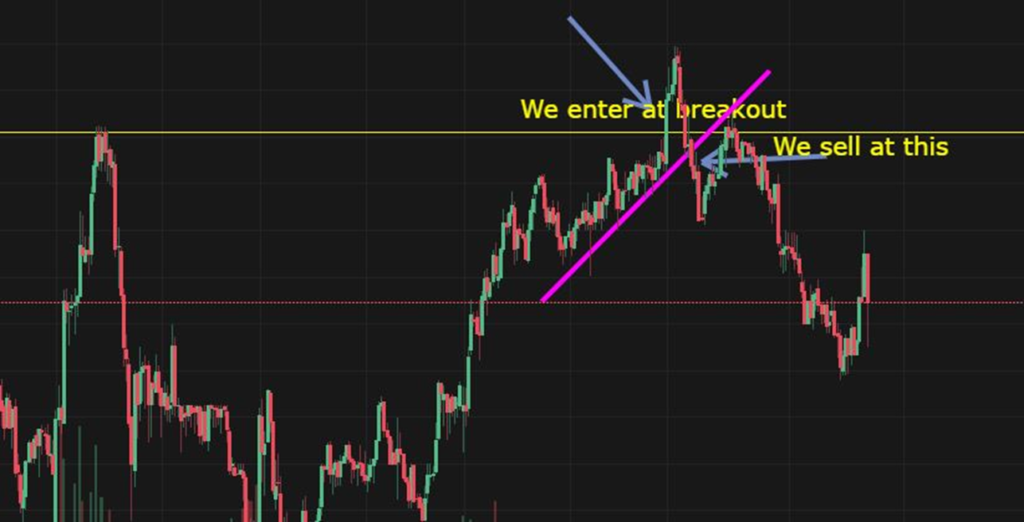FOMO-Fear of missing out in stock market

Fear of missing opportunity is something we all go through on a timely basis. We plan to buy/sell however we don’t do at right place and once it either sides goes and we buy at top and sell at low which always takes our position in the loss.

As we can see in above chart that we took trade as per break-out but did not wait for retrench it back and take support. It’s all FOMO which in hurry force us to take trade and eventually we buy at price without waiting at right price loose our position.

In above image we can see how we enter at breakout but it did not sustain and gave trend break out we again enter .
Here in both cases due to FOMO we entered in BUY/SELL but in both cases we got STOP LOSS hit.
This all happens because we don’t wait and in FOMO we buy/sell immediately and eventually lose money.
Also Read: Timeframe in Stock Market
FOMO stands for “Fear of Missing Out.” In trading, FOMO refers to the strong emotional urge or anxiety that traders experience when they see others making profits or when they believe they might miss out on a potentially profitable trade or market move. FOMO can lead traders to make impulsive decisions that deviate from their trading plan and risk management strategies, often resulting in poor trading outcomes.
Characteristics and Effects of FOMO in Trading:
- Impulsive Trading: FOMO can drive traders to enter trades without proper analysis or justification, simply because they fear missing out on potential profits. This impulsive behavior can be detrimental to their overall trading performance.
- Chasing the Market: Traders experiencing FOMO may chase a market that has already made significant moves, leading them to enter positions at unfavorable prices, which increases their risk exposure.
- Overtrading: FOMO can lead to overtrading, where traders excessively execute trades, often without a clear strategy. Overtrading can increase transaction costs and lower overall profitability.
- Ignoring Risk Management: Traders under the influence of FOMO may disregard proper risk management practices, such as setting stop-loss orders or position sizing. This lack of risk management can lead to substantial losses.
- Stress and Anxiety: The emotional toll of FOMO can cause stress and anxiety in traders, impairing their ability to think rationally and make well-informed decisions.
- Regret: If FOMO-driven trades result in losses, traders may experience regret and frustration for not sticking to their trading plan.
How to Manage FOMO in Trading:
- Stick to Your Trading Plan: Having a well-defined trading plan and following it rigorously can help prevent impulsive decisions driven by FOMO. Your trading plan should include entry and exit criteria, risk management strategies, and clear objectives.
- Practice Patience: Be patient and wait for your trading setups to align with your strategy. Avoid entering trades just because others seem to be profiting from a particular market move.
- Avoid Social Media Triggers: Social media platforms can amplify FOMO by showcasing others’ apparent successes. Limit your exposure to social media during trading hours to avoid emotional reactions.
- Focus on Long-Term Goals: Keep your focus on your long-term trading goals rather than getting caught up in short-term market movements.
- Risk Management: Always prioritize risk management. Use stop-loss orders and position sizing to protect your capital from significant losses.
- Learn from Mistakes: If you’ve succumbed to FOMO in the past, analyze those trades and learn from the experience. Understanding the negative impact of FOMO can help you control it better in the future.
Remember that trading is a MARATHON, not a SPRINT. Successful traders prioritize discipline, patience, and a consistent approach over impulsive reactions driven by fear or FOMO.